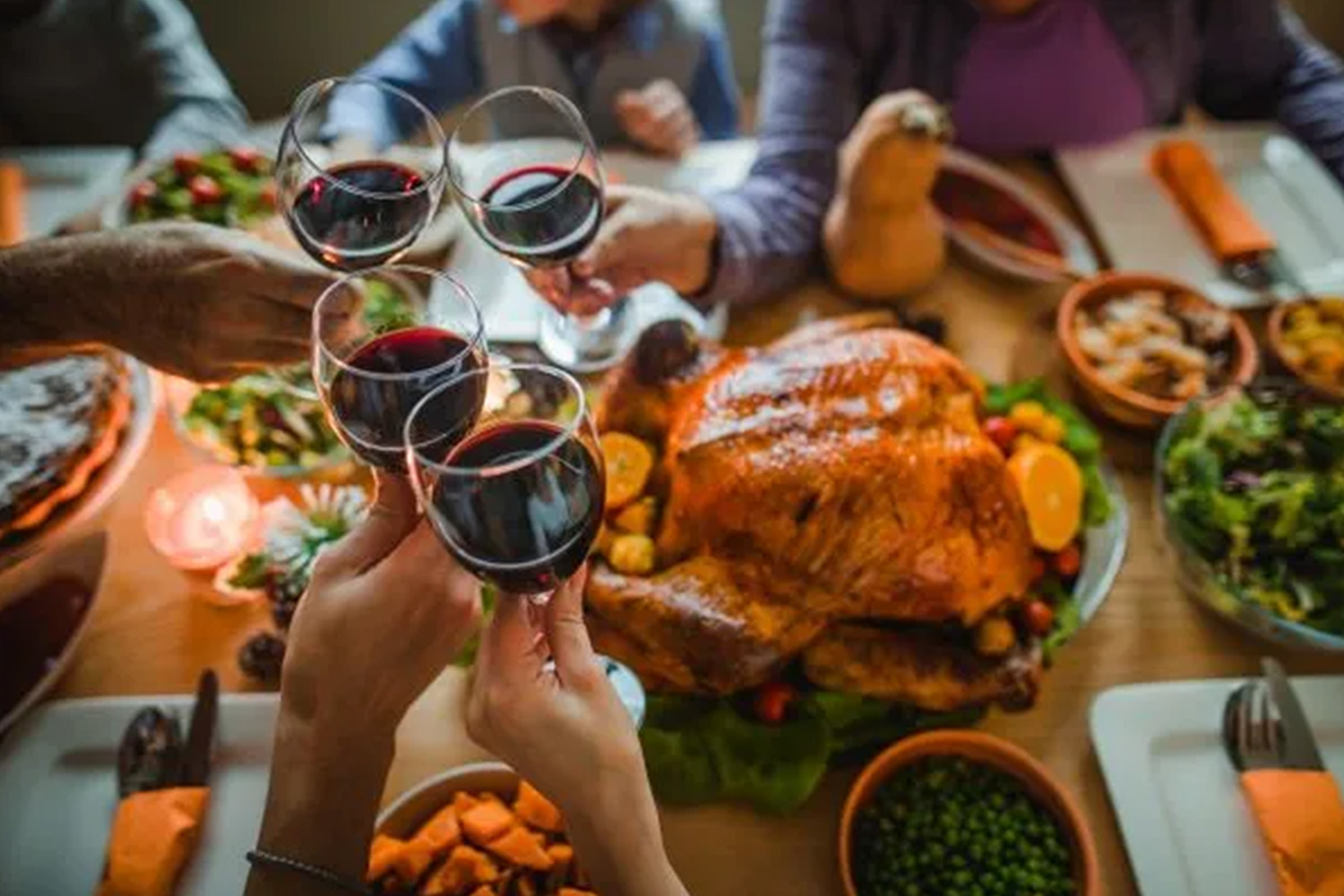The holiday season is rapidly approaching, bringing with it countless expectations of family connection, laughter, gratitude, and joy. When these idyllic visions fall short, mental health often worsens, leading many to turn to alcohol and substance use to cope. As we gather around the table to give thanks, it’s equally important to understand the link between Thanksgiving and alcohol abuse, and what we can do to prioritize well-being during the holidays.
Why do the holidays serve as triggers for alcohol and substance use?
According to NAMI, 64% of individuals living with a mental illness report that the holidays make their conditions worse, often due to the increased amount of stress the holiday season brings. People tend to feel more anxious during this time for a variety of reasons: the holiday blues and seasonal affective disorder; the pressure of gift giving and overspending; unhealthy family dynamics; and much more. Studies suggest that people experiencing high stress levels have a greater likelihood of using alcohol or substances to forget their worries. These factors, combined with the culture surrounding alcohol during the holiday season, leads to an increased risk in the urge to over consume or relapse.
Setting boundaries
Rates of binge drinking increase during every holiday, but Thanksgiving is known to be among the worst offenders. The day before Thanksgiving has even earned the nickname “Blackout Wednesday,” as it is one of the most popular days for bars in America, even rivaling St. Patrick’s Day. For those suffering with alcohol and substance use issues, Thanksgiving can prove to be a major trigger. Family members that don’t understand sobriety may encourage a drink with dinner, thinking that “just one won’t hurt.” For some, even being in the same room as alcohol can be enough to compromise progress.
In these situations, it is important to set boundaries and communicate with your family. Here are some ways you can express your intentions and stick to them at your holiday dinner.
● Host Thanksgiving yourself. Your house, your rules. By hosting, you can ensure alcohol will not be on the menu.
● Let people know ahead of time that you aren’t drinking. If you feel comfortable sharing your sobriety journey with select family members, explain how important it is that you aren’t offered alcohol.
● Be the designated driver. Giving yourself the responsibility of driving someone else home at night will further motivate you to refrain from drinking.
● Have a non-alcoholic drink in your hand at all times. Consider bringing an alcohol-free beer, wine, or juice to sip on throughout the night. Holding a beverage can deter people from offering you something alcoholic to drink, and will help lessen feelings of missing out.
● Stay busy. Offer to help with the cooking, cleaning, and serving throughout Thanksgiving dinner. This can help to keep your mind distracted and away from thoughts of alcohol and anxiety.
As the holidays draw near, it’s important to value the things we should be most grateful for: our well-being, and that of our loved ones. Understanding the triggers for overconsumption or relapse & knowing when and how to set boundaries are integral in maintaining a healthy lifestyle during the season of gratitude. If you or a loved one show signs of alcohol and substance use, call the Guidance Center at (516) 626-1971 or click here to get connected to our drug and alcohol treatment and prevention services. It is never too late to turn hurting into healing














